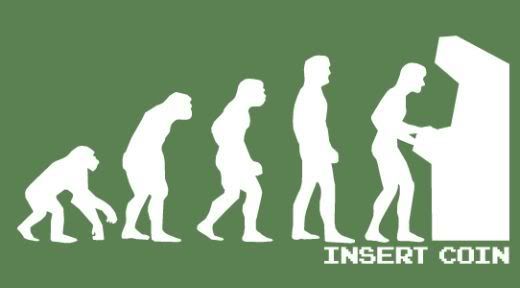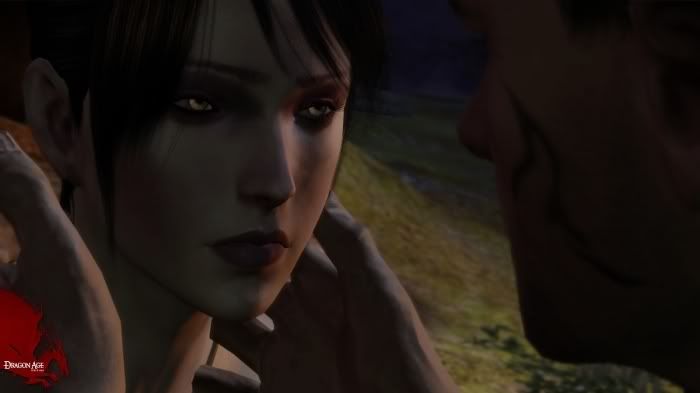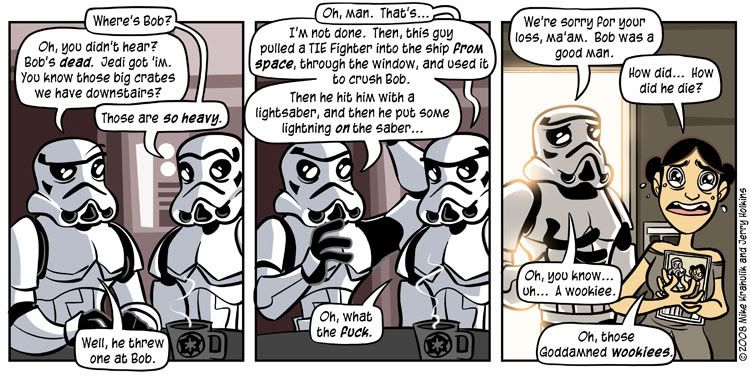This post has not been edited by the GamesBeat staff. Opinions by GamesBeat community writers do not necessarily reflect those of the staff.
Imagine, if you will, that the video-game landscape and industry that we have all known, loved, and grown up with for the last twenty-five years was actually a biosphere within itself. This collection of life would be a thriving environment in which a constant fluidity of change occur in a natural way.

Charles Darwin, best known for his work contributing to the theory of evolution in his book On the Origin of Species, posited that natural selection was the act of traits and mutations carrying on through the lineage of a species while inferior characteristics died off with the weaker flora and fauna. We can use this idea to look at the steady evolution of storytelling in gaming through the last two decades.
Lately, games with an emphasis on narrative have been finding their way into my PlayStation 3 and PC with regularity. In the last six months, I have played (to either completion or in some degree) Mass Effect 1 and 2, Dragon Age: Origins, Infamous, Demon’s Souls, Assassin’s Creed, and Dante’s Inferno. These titles — not to mention my trophy list — make evident that I play a lot of story-driven games in general.
But my thoughts weren’t pushed onto the proverbial paper until I bought Dragon Age 2 this past Tuesday…and then realized that strong mutations carry on in a strain for survival while the weaker ones flounder and are thrown back into the ether.
While playing Dragon Age 2, BioWare’s storytelling choices from the previous installment were very much on my mind. Origins had done many things that always seemed like it was the longest way of doing something. The somewhat archaic text trees combined with a silent protagonist always felt hollow, like my character wasn’t so much being a master of his own destiny but being controlled by a puppeteer.

Of course, he was. But, why is it then that by giving Dragon Age 2’s main character, Hawke, a voice of her own that BioWare has immediately made the story more personal and engrossing? Suddenly, I cared about the relationships, trials, and tribulations of Hawke and her family far more than if she stood silently while her companions remedied her Charlie Chaplin routine. A shift had occurred in the Dragon Age series, where it almost felt like you were being taken in on the ground level of your epic adventure instead of silently watching from the rafters.
BioWare, and a few other developers, have seen natural selection take place in their own titles. One example is the storytelling changes made between Mass Effect 1 and 2, where a shift in the personal interactions between protagonist Sheppard and your crew took place. Suddenly, these were more intimate encounters devised of levity and a human touch, even with characters with not-so-human features.
Some franchises aren’t always so lucky to progress in storytelling with such grace. One glaring example would be the recent failures of the Star Wars: The Force Unleashed series, which saw a shift from an engrossing-narrative worth of level-1, Lucasfilm canon to a traipse around the two same environments with Boba Fett giggling in the background like Gargamel from Smurfs.
What happened? A lack of evolution. What worked once didn’t work again, as I found myself wondering how exactly the same guy could abuse Darth Vader twice, with the second fight being with a supposed unstable clone (or wasn’t he? Apparently, the writers couldn’t decide and left that out).

Force Unleashed sank to the bottom of the gaming seas, and what was supposed to be a highly anticipated sequel was merely an example showing that if you do not progress and adapt you will suffer the consequences.
Other developers have caught on to the wave of giving players something new. A great example is the upcoming Infamous 2 in which developer Sucker Punch has taken a page or two out of BioWare’s book by offering a continuing storyline from your previous game — as well as a more intimate look at your hero (or villain). Additionally, Infamous 2 will allow users to create missions, which adds another level to the storytelling biosphere. This adaptation from the LittleBigPlanet series could very well be something we see more of in the future, not just from PC releases typically known for this level of community interaction.
Evolve or die. This is a simple mantra that every developer should take to heart in this new age of technology and ever-aging consumers. We crave and require more than a screen telling us our princess is in another castle, yet we are still giddy with joy with the same character traits of a Krogan looking up T. rexes and alien pornography (oh, Grunt). With the gaming biosphere ever changing, we as consumers can only hope that the medium evolves along with us…or we may go back to getting our story for a game from the user manual.
Originally posted at digitalhippos.com.
